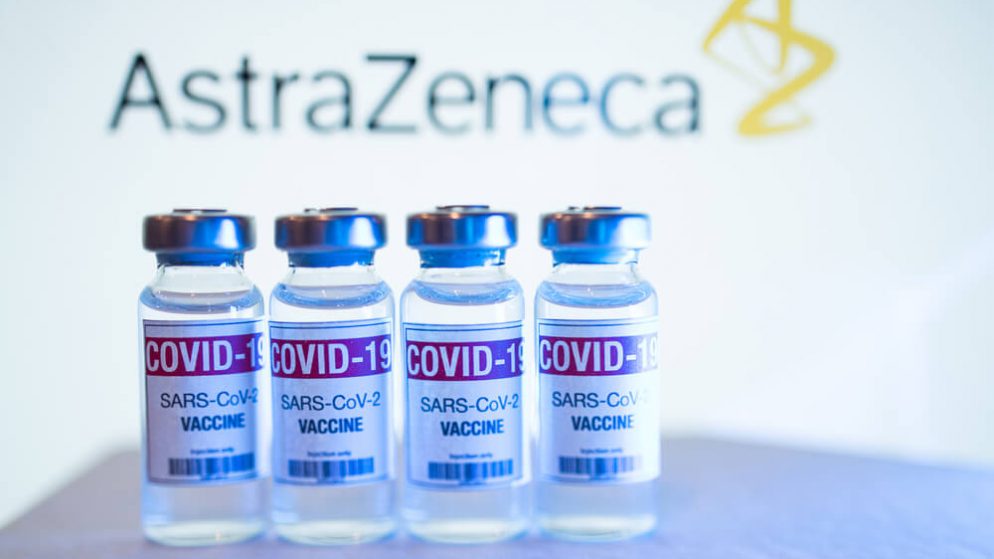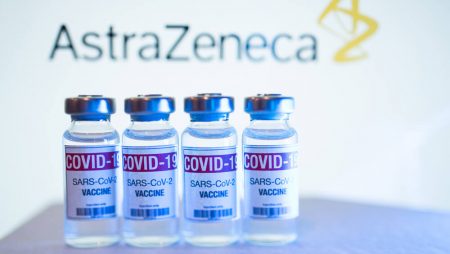



Get new exclusive access to healthcare business reports & breaking news




AstraZeneca announced May 7th it had initiated the worldwide withdrawal of its COVID-19 vaccine due to a “surplus of available updated vaccines” since the pandemic.
The company also proceeded to withdraw the vaccine Vaxzevria’s marketing authorizations within Europe. It submitted a withdrawal request there in March which took effect on May 7.
“As multiple, variant COVID-19 vaccines have since been developed there is a surplus of available updated vaccines,” the company said, adding that this had led to a decline in demand for Vaxzevria, which is no longer being manufactured or supplied. “This has led to a decline in demand for Vaxzevria, which is no longer being manufactured or supplied. AstraZeneca has therefore taken the decision to initiate withdrawal of the Marketing Authorisations for Vaxzevria within Europe.”
The company also noted that they were “incredibly proud” of the vaccine, which was developed alongside the University of Oxford during the height of the pandemic.
The company outlined in its recent statement that the withdrawal of Vaxzevria was made for commercial reasons.
It said: “We are incredibly proud of the role Vaxzevria played in ending the global pandemic. According to independent estimates, over 6.5 million lives were saved in the first year of use alone and over three billion doses were supplied globally.
“Our efforts have been recognised by governments around the world and are widely regarded as being a critical component of ending the global pandemic.”
According to media reports, the Anglo-Swedish drugmaker has previously admitted in court documents that the vaccine causes side-effects such as blood clots and low blood platelet counts.
The firm’s application to withdraw the vaccine was made on March 5 and came into effect on May 7, according to the Telegraph, which first reported the development.
The Serum Institute of India (SII), which produced AstraZeneca’s COVID-19 vaccine under the brand name Covishield, stopped manufacturing and supply of the doses since December 2021, an SII spokesperson said.
London-listed AstraZeneca began moving into respiratory syncytial virus vaccines and obesity drugs through several deals last year after a slowdown in growth as COVID-19 medicine sales declined.
AstraZeneca is not alone in experiencing a post-pandemic COVID-19 slump.
Founded in 2010, Moderna is a pharmaceutical and biotechnology firm that sold $167 million in Q1 from its sole product, the COVID-19 vaccine. This represents a 91% decrease from the $1.9 billion in revenues the company reported in Q1 2023, with a $1.18 billion net loss.
Given that vaccine demand has been declining since 2021, the recent steep drop in sales is not surprising. In fact, according to the Massachusetts-based business, the drop in sales “aligns with the anticipated transition to a seasonal COVID-19 vaccine market,” as reported by Fortune.
In an effort to recover from the post-pandemic downturn, Moderna further stated that it will start expanding the range of mRNA vaccines it offers, including a seasonal flu shot and a vaccine against the respiratory syncytial virus (RSV). In Q3 2024, the RSV vaccine is anticipated to be released should it be cleared to do so.
Recently, Moderna affirmed that its Q1 2024 net loss of $1.18 billion exceeded the $1.4 billion that Wall Street had predicted. The business stated that it expects full-year sales of $4 billion.
AstraZeneca hasn’t yet disclosed what it will do to recover from this reported loss, but the company has previously entered various collaborations to perfect or develop other aspects of its drug making capability.
Two years ago, Astra Zeneca has taken a roughly £25 million ($33 million) stake in Huma, according to an inside source, who remained anonymous.
Founded in 2011 as Medopad, Huma has since raised over $200 million in venture capital funding to date from investors including Bayer, Samsung and Sony.
As part of this partnership, Huma and AstraZeneca will launch Software as a Medical Device (SaMD) companion apps targeted at several therapeutic areas and will partner to help accelerate adoption of decentralized clinical trials. These will build on Huma’s proven technologies which already power digital-first care serving more than 1.8 million active patient users across more than 3,000 hospitals and clinics. Huma’s technologies are designed to connect with clinical workflows, allowing for more efficient care delivery.
In August of 2022, Astra Zeneca entered a collaboration with Thorne HealthTech, in order to internalize Thorne’s disease discovery platform into AZ for further evaluation and to gain insight into additional uses for AZ molecules.
Thorne’s cloud-based AI disease discovery system integrates biology and chemistry evidence to create compound innovations for new product development in both nutrition and pharmaceutical fields. The system, which leverages a proprietary multi-omic platform and Thorne’s AI models, has been validated by multiple external clinical research in peer-reviewed publications.
“Our collaboration with AstraZeneca brings together traditional biology with innovative AI-driven technologies, representing the future of drug discovery,” said Chairman and CEO of Thorne HealthTech, Paul Jacobson. “Together, we will have an improved understanding of the underlying disease mechanisms to further identify novel and biologically plausible drug targets which we know are incredibly complex.”